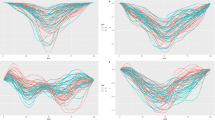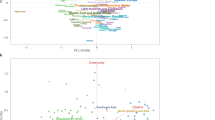Abstract
IN a paper by Prof. C. G. Knott on “Recent Innovations in Vector Theory,” of which an abstract has been given in NATURE (vol. xlvii. pp. 590–593; see also a minor abstract on p. 287), the doctrine that the quaternion affords the only sufficient and proper basis for vector analysis is maintained by arguments based so largely on the faults and deficiencies which the author has found in my pamphlet, “Elements of Vector Analysis,” as to give to such faults an importance which they would not otherwise possess, and to make some reply from me necessary, if I would not discredit the cause of non-quaternionic vector analysis. Especially is this true in view of the warm commendation and endorsement of the paper, by Prof. Tait, which appeared in NATURE somewhat earlier (p. 225).
This is a preview of subscription content, access via your institution
Access options
Subscribe to this journal
Receive 51 print issues and online access
$199.00 per year
only $3.90 per issue
Buy this article
- Purchase on Springer Link
- Instant access to full article PDF
Prices may be subject to local taxes which are calculated during checkout
Similar content being viewed by others
Rights and permissions
About this article
Cite this article
GIBBS, J. Quaternions and Vector Analysis. Nature 48, 364–367 (1893). https://doi.org/10.1038/048364b0
Issue Date:
DOI: https://doi.org/10.1038/048364b0
Comments
By submitting a comment you agree to abide by our Terms and Community Guidelines. If you find something abusive or that does not comply with our terms or guidelines please flag it as inappropriate.



